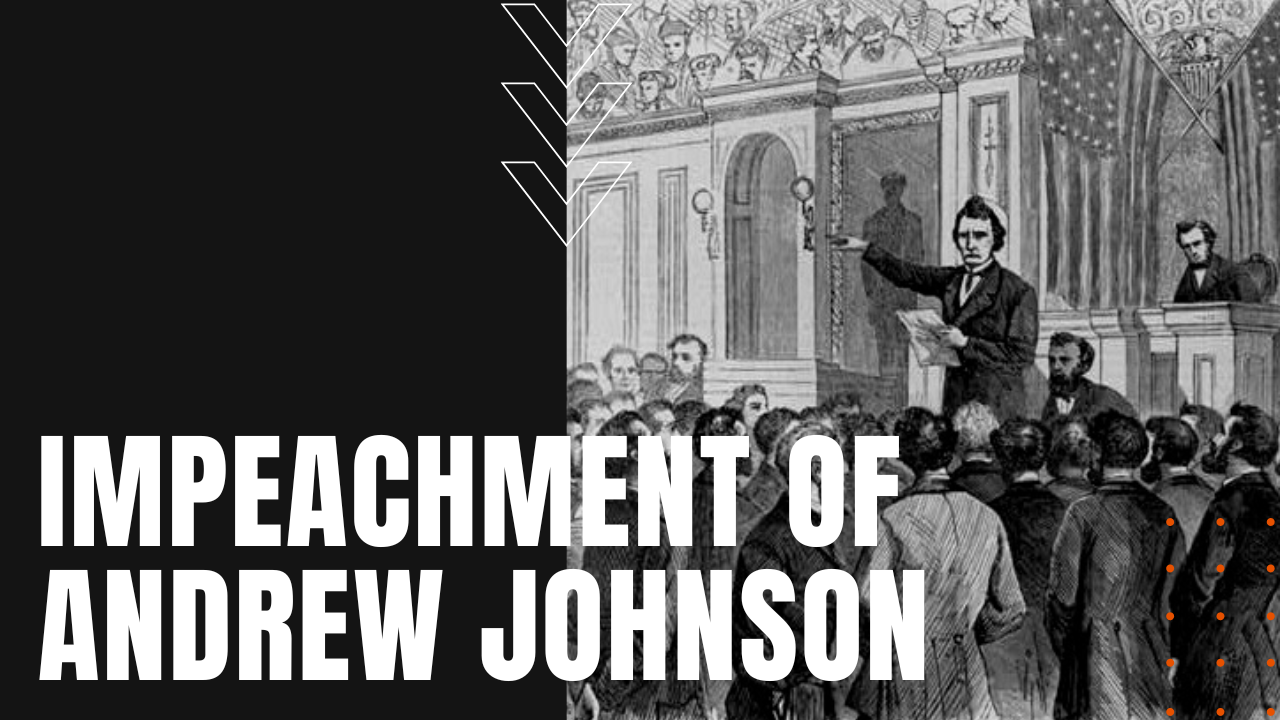The Impeachment of Andrew Johnson

Following the outbreak of hostilities during the Civil War, Andrew Johnson was a highly regarded senator from Tennessee, as well as the only U.S. senator from a seceding state to remain loyal to the Union cause.
Elected Vice President following the presidential election of 1864, which propelled Abraham Lincoln to a second term in office, Johnson was sworn in as president following Lincoln’s assassination at Ford’s Theater—a mere six days after the end of the Civil War.
Why did Congress Bring Articles of Impeachment Against Andrew Johnson?
Johnson’s lenient, Southern-sympathizing policies soon bucked heads with the Radical Republican majority in Congress, who sought heavy-handed Reconstruction policies, intended to demand full suffrage and equal rights for freed slaves in the South. In opposition to majority congressional sentiment, Johnson enacted lenient policies granting near-immediate amnesty to ex-Confederates, as well as rapid restoration of statehood to seceded Southern states.
He also gave his approval to the rise of local and quite unencumbered Southern governments that enacted Black Codes, effectively preserving a system of segregation and inequality in the emerging Jim Crow South.
Tenure of Office Act
After Johnson repeatedly bucked ideological heads with his Secretary of War, Edwin M. Stanton—a once leading Radical Republican in Lincoln’s administration—in March of 1867, Congress passed the Tenure of Office Act over Johnson’s immediate veto, which was tailored to prohibit Johnson from removing presidential cabinet members without congressional approval.
In the fall of 1867, Johnson chose to challenge the constitutionality of the Tenure of Office Act, by replacing Stanton with Civil War hero Ulysses S. Grant, but after the U.S. Supreme Court refused to rule on the case, Grant returned his office to Stanton, which did much to further Grant’s popularity as a future presidential candidate.
Having already debated impeachment following Johnson’s initial firing of his Secretary of War, on February 21st, 1868, Johnson yet again fired Stanton by appointing General Lorenzo Thomas to the office, refusing to yield to Congress by physically barricading himself in his office.
Three days later, Congress drafted eleven Articles of Impeachment against Johnson, which led to his impeachment trial in the Senate on March 13th, under the supervision of U.S. Supreme Court Chief Justice Salmon P. Chase. The trial concluded on May 26th, when the Senate narrowly failed to reach the necessary two-thirds majority vote for impeachment, making Andrew Johnson, the first of four sitting American presidents to face impeachment in the history of the American Republic.
